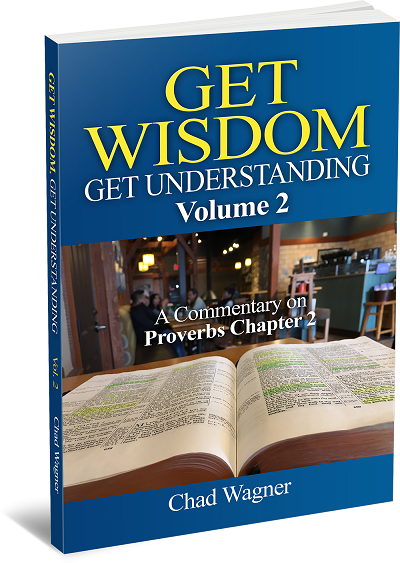Blog - Proverbs 3:21

 If you like this blog, then you will like Get Wisdom, Get Understanding which is Pastor Wagner's commentary series on the book of Proverbs which is available on Amazon in paperback or Kindle. Find out more here.
For all the blogs in this series, click here: Proverbs Commentary.
Proverbs 3:21
"My son, let not them depart from thine eyes: keep sound wisdom and discretion:" (Pro 3:21)
If you like this blog, then you will like Get Wisdom, Get Understanding which is Pastor Wagner's commentary series on the book of Proverbs which is available on Amazon in paperback or Kindle. Find out more here.
For all the blogs in this series, click here: Proverbs Commentary.
Proverbs 3:21
"My son, let not them depart from thine eyes: keep sound wisdom and discretion:" (Pro 3:21)
In this verse Solomon returns to his previous line of thought that began in verse 13 and continued to verse 18 in which he gave numerous reasons why the man who finds wisdom is blessed. My son, let not them depart from thine eyes. The them in this verse refers to wisdom and understanding. Solomon stated in Proverbs 3:13 that the man who finds wisdom and understanding is happy (blessed, fortunate), and then he gave the reasons for it in verses 14-18. He then again extolled wisdom and understanding in verses 19-20 by showing that the Lord used them to create the universe. In Proverbs 3:21, Solomon once more exhorts his son to lay hold on wisdom and understanding, and then in verses 22-26 he gives additional benefits and blessings that accrue from getting and retaining wisdom. In order to possess the blessings of wisdom and understanding, we must let not them depart from our eyes. There are two ways in which we can do this: physically and spiritually. Wisdom and understanding come from the word of God.
Pro 2:6 - For the LORD giveth wisdom: out of his mouth cometh knowledge and understanding.
So physically speaking, if we continually read the scriptures, they will literally remain in the sight of our eyes. Spiritually speaking, our eyes also represent our understanding (Eph 1:18).Eph 1:18 - The eyes of your understanding being enlightened; that ye may know what is the hope of his calling, and what the riches of the glory of his inheritance in the saints,
It is for this reason that when we understand something, we often say "I see." By keeping wisdom and understanding in our thoughts and in our "mind's eye" we won't let them depart from us. In other words, we should always be thinking about how to be wise, and if we do, wisdom will not depart from our eyes. Keep sound wisdom and discretion. There are different types of wisdom. There is the wisdom of God and the wisdom of this world which is devilish.1Co 1:21 - For after that in the wisdom of God the world by wisdom knew not God, it pleased God by the foolishness of preaching to save them that believe. 1Co 1:20 - Where is the wise? where is the scribe? where is the disputer of this world? hath not God made foolish the wisdom of this world? Jas 3:15 - This wisdom descendeth not from above, but is earthly, sensual, devilish.
The wisdom of God is sound wisdom. Sound is "in full accordance with fact, reason, or good sense; founded on true or well-established grounds; free from error, fallacy, or logical defect; good, strong, valid" (OED). Wisdom is "capacity of judging rightly in matters relating to life and conduct; soundness of judgement in the choice of means and ends; sometimes, less strictly, sound sense, esp. in practical affairs: opp. to folly" (OED). By keeping sound wisdom, that is wisdom which is true, good, and free from error which comes from the word of God, we will experience the blessing and benefits that come from it. But if on the other hand we keep the wisdom of this world which is found in secular psychology and philosophy books, public school and university classrooms, the media, television, movies, etc., we will only have the illusion of wisdom, but not sound judgment which enables us to live a successful and blessed life. We must also keep discretion which is the "ability to discern or distinguish what is right, befitting, or advisable, esp. as regards one's own conduct or action; the quality of being discreet; discernment; prudence, sagacity, circumspection, sound judgement" (OED). Since discretion is the quality of being discreet, it is helpful to define discreet which is "showing discernment or judgement in the guidance of one's own speech and action; judicious, prudent, circumspect, cautious; often esp. that can be silent when speech would be inconvenient" (OED). Putting it all together then, wisdom enables a man to make sound decisions, and discretion enables him to know when to act and when not to, when to speak and when to keep silence. The sooner we learn to embrace and live by sound wisdom and discretion, the sooner they shall "be life unto thy soul, and grace to thy neck" (Pro 3:22).